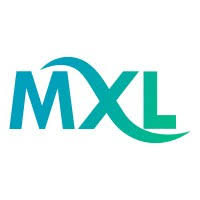
Robinjasper1109
Uploaded on Jul 14, 2025
In an era defined by unprecedented technological acceleration and dynamic market shifts, the conventional paradigms of workplace training are rapidly becoming obsolete. Organizations are no longer seeking mere knowledge transfer; they demand agile, effective, and efficient learning solutions that directly translate into enhanced productivity and sustained competitive advantage. This urgent need for smarter, more adaptive training methodologies has firmly positioned microlearning as not just a trend, but the undisputed future of efficient workplace training. The very essence of microlearning lies in its strategic brevity. It involves breaking down complex information into highly focused, bite-sized learning modules, often referred to as "snippets." These concise units, typically lasting from a few seconds to a few minutes, are meticulously designed to address single learning objectives, making them incredibly digestible and immediately actionable. Delivered through sophisticated Microlearning Platforms, this approach fundamentally redefines corporate education. Unlike cumbersome, multi-hour training sessions that often disrupt workflow and lead to diminished retention, microlearning integrates seamlessly into an employee's daily routine, transforming learning into an organic and continuous process rather than a sporadic chore. This inherent agility ensures that crucial knowledge is absorbed swiftly and applied instantly, driving tangible gains in both individual performance and collective organizational efficiency. Consider the diverse and pressing training needs across various industrial sectors. In the intricate world of Finance, professionals constantly face evolving regulations, new financial products, and complex market dynamics. A rapid, targeted microlearning course on a specific compliance update or a new investment strategy can equip them instantly, maintaining operational accuracy and client trust. For the dynamic Retail sector, where product lines change rapidly and customer interactions demand quick responses, microlearning snippets provide on-the-spot guidance for new product features, sales techniques, or handling complex customer service scenarios. The transformative power of microlearning in shaping the future of training is profoundly amplified by advanced technological integrations. A cutting-edge microlearning platform frequently incorporates an AI-powered authoring tool. This intelligent technology empowers learning and development professionals to rapidly create highly engaging and precisely targeted content. It can intelligently analyze vast repositories of existing organizational manuals, procedural documents, or industry reports, then distill this complex information into easily consumable, impactful microlearning snippets. This capability drastically accelerates content development, ensuring that training materials are perpetually current and responsive to the fastest-paced business environments. Furthermore, an advanced AI-Powered Learning Platform takes personalization to the next level. By leveraging artificial intelligence to analyze individual learning patterns, performance data, and identified skill gaps, the platform can dynamically recommend specific Microlearning Application tailored to each employee's unique needs. This adaptive approach ensures that training is never generic but always precisely aligned with fostering optimal skill development and knowledge retention. In industries where precision and safety are paramount, such as Mining, microlearning offers invaluable benefits. Workers can receive rapid refreshers on critical equipment operation, emergency protocols, or environmental compliance procedures directly on-site, enhancing safety standards and operational efficiency. The Health care sector can utilize microlearning for quick updates on new medical procedures, pharmaceutical guidelines, or patient care protocols, ensuring that medical professionals are always operating with the latest information, which is critical for patient outcomes. For the Oil and Gas industry, where complex machinery and stringent safety regulations are the norm, microlearning can deliver essential technical diagnostics or safety briefings before critical operations commence, minimizing risks and maximizing uptime. Similarly, in Pharma, it can provide swift training on new drug formulations, quality control measures, or changes in regulatory submission processes. In the Insurance sector, agents can quickly learn about new policy features, updated underwriting guidelines, or nuanced claims processing steps, leading to faster service and improved client satisfaction. The comprehensive array of Microlearning Tools—including short instructional videos, interactive quizzes, engaging infographics, realistic simulations, and gamified challenges—makes learning not only efficient but also highly engaging and enjoyable. This intrinsic appeal is vital for sustained learner motivation. Organizations that strategically invest in robust microlearning software and integrate it with a powerful Microlearning LMS (Learning Management System) gain the ability to efficiently manage, deliver, and meticulously track all their training initiatives. This holistic ecosystem supports a culture of continuous learning and agile skill development, directly contributing to higher employee engagement, superior job performance, and ultimately, a significant boost in organizational productivity and competitiveness. As the workplace continues to evolve at an unprecedented pace, characterized by diminishing attention spans and a preference for on-demand access to information, microlearning is undeniably becoming the de facto standard for efficient corporate training. It empowers employees with the precise knowledge they need, exactly when they need it, fostering a proactive and highly skilled workforce that is truly future-ready. MaxLearn, through its innovative platform and commitment to cutting-edge learning solutions, is clearly at the forefront of this transformative shift, proving that microlearning is not just the future, but the present reality of effective workplace training.

Comments